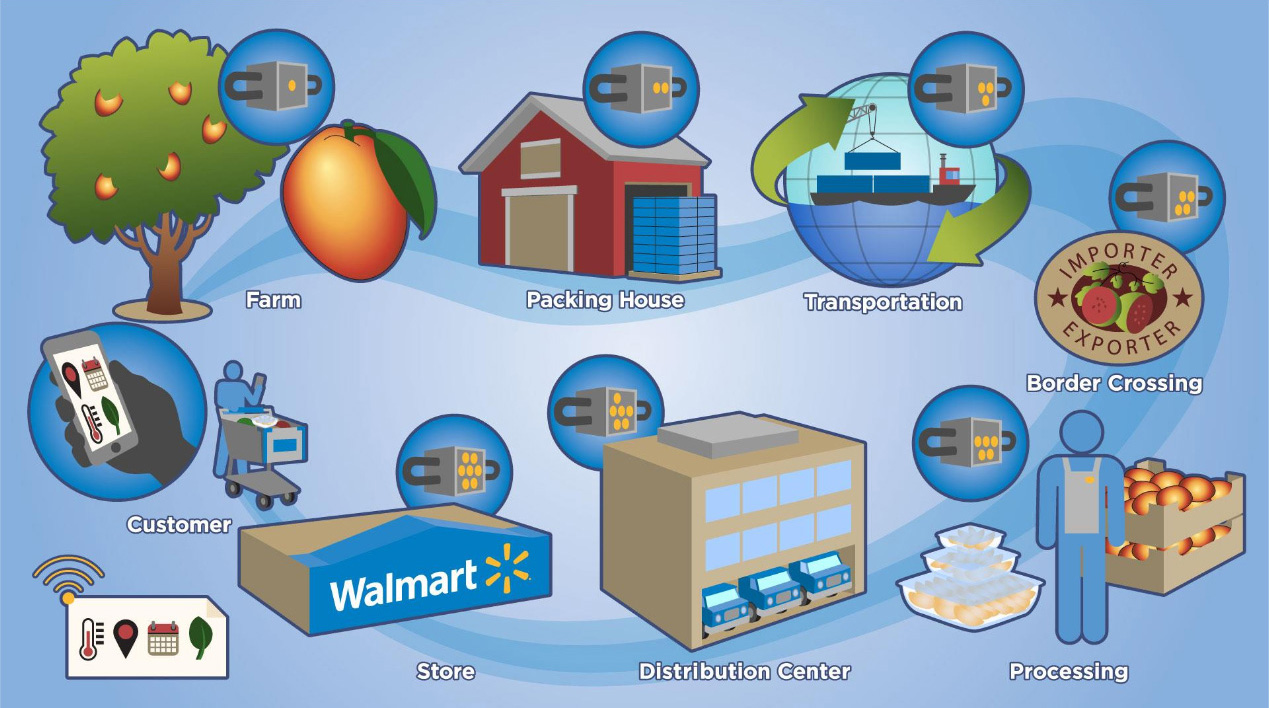The Role of Blockchain in Developing Transparent Marketing Strategies for Regenerative Brands
Meta Description: Explore how blockchain technology enhances transparency in marketing strategies for regenerative brands, fostering trust and innovation in sustainability.
In recent years, consumers have increasingly prioritized sustainability, and the emergence of regenerative brands reflects this shift toward ethical practices. With this change comes the demand for transparency in marketing strategies, leading brands to explore innovative solutions. One of the most promising technologies to meet this demand is blockchain. Blockchain offers a unique approach to establishing trust and credibility, empowering regenerative brands to communicate their values effectively.
:max_bytes(150000):strip_icc()/distributed-ledger-technology-dlt.asp-Final-2508fba494c24e8590a433a9136bd24f.png)
Author Introduction:
Alexej Markov is an SEO specialist with over 7 years of experience in digital marketing, focusing on enhancing brand visibility and authority through innovative strategies. He has a deep interest in sustainability and technology, helping numerous businesses adapt to the evolving market landscape.
Understanding Blockchain Basics
Definition and Function
Blockchain technology serves as a decentralized, distributed ledger system that securely records transactions across multiple computers. The unique aspect of blockchain is its immutability, meaning that once a transaction is recorded, it cannot be altered retroactively. This foundational quality enhances both security and transparency, making blockchain a valuable tool for regenerative brands striving for authentic marketing.
Key Features of Blockchain
- Transparency: All participants in the network can view transactions, promoting honesty and openness.
- Immutability: Prevents data tampering, ensuring the information remains secure and accurate.
- Security: Utilizes cryptographic algorithms to protect data, fostering consumer trust in brands.
Real-World Examples and Case Studies
Brands Using Blockchain
- Everledger: This innovative startup leverages blockchain to create a global digital registry, providing proof of provenance for precious items like diamonds. This ensures that consumers can trust the ethical sourcing of luxury goods.

Food Supply Chain
- Walmart and IBM's Food Trust Program: This collaboration uses blockchain technology to track the origin of food products, enhancing consumer trust around food safety and sustainable sourcing practices. It allows consumers to trace product origins, ensuring ethical practices are upheld from farm to table.

Fashion Industry
- Provenance: This brand uses blockchain to verify and share information about the production of ethically-made clothing. By providing transparency, Provenance appeals to informed consumers who value sustainability in their purchasing decisions.
Statistics and Data Points
Understanding consumer preferences is essential for effective marketing. A survey by PwC revealed that 86% of consumers are worried about data privacy, yet they desire transparency in sourcing and production practices. Furthermore, projections from MarketsandMarkets estimate that the blockchain technology market will grow from $3 billion in 2020 to $39.7 billion by 2025. This growth signals the increasing recognition of blockchain's significance in marketing strategies.
Benefits of Transparency through Blockchain
Trust Building
Research indicates that brands that adopt transparent practices tend to foster stronger customer loyalty. According to Nielsen's Global Corporate Sustainability Report, 55% of consumers are willing to pay more for sustainable brands, emphasizing that transparency directly impacts purchasing decisions.
Impact on Purchase Decisions
When consumers can verify product claims, they are significantly more likely to choose a brand. Blockchain technology plays a crucial role in facilitating this verification process, especially in industries like cosmetics, fashion, and food.
Impact on Marketing Strategies
Personal Data Privacy
Blockchain technology empowers consumers to take control of their personal data, influencing targeted marketing strategies and fostering brand loyalty. Brands that prioritize privacy can cultivate stronger relationships with their customers.
Authenticity Verification
With blockchain's capabilities, brands can verify authenticity claims, thus avoiding accusations of greenwashing. This is especially important as consumers become more discerning about the products they purchase.
Challenges and Considerations
Adoption Barriers
Despite its advantages, blockchain adoption may present challenges, such as high integration costs and technical complexities. Brands need to assess these barriers thoughtfully to implement effective blockchain solutions.
Regulatory Environment
The regulatory landscape governing blockchain and cryptocurrency is continually evolving. Brands should stay informed about compliance issues to ensure responsible implementation of blockchain technology.
Future of Blockchain in Marketing
Predictions
Experts anticipate that blockchain will play a significant role in enhancing loyalty programs through secure smart contracts and personalized marketing initiatives. The potential for leveraging blockchain in loyalty programs can help brands deliver unique offerings to engaged customers.
Innovative Use Cases
Emerging trends like non-fungible tokens (NFTs) are allowing brands to engage consumers in creative ways. By using NFTs, brands can create exclusive experiences or products, showcasing creativity in how they market within the blockchain landscape.
References and Further Reading
To further explore the intersection of blockchain technology and marketing strategies, consider the following resources:
- Harvard Business Review: Insights on blockchain technology's impact on various industries.
- MarketsandMarkets: Comprehensive market research on the growth of blockchain technology.
- McKinsey & Company: Analysis on sustainability trends and consumer preferences.
The role of blockchain in developing transparent marketing strategies for regenerative brands is not just a technological endeavor; it represents a critical shift in how businesses communicate their values. By embracing blockchain, brands can not only improve their credibility but also respond effectively to the growing consumer demand for sustainable and ethical practices.
Conclusion
In conclusion, the integration of blockchain technology into marketing strategies presents an exciting opportunity for regenerative brands to foster transparency and trust. Educating both businesses and consumers about this powerful technology is essential for driving positive change in the marketplace. As discussions around sustainability and technology continue to evolve, brands that leverage blockchain effectively will lead the charge towards a more transparent future in marketing.
Explore our related content and engage with us through our newsletter for more insights on sustainability and innovative marketing strategies!
